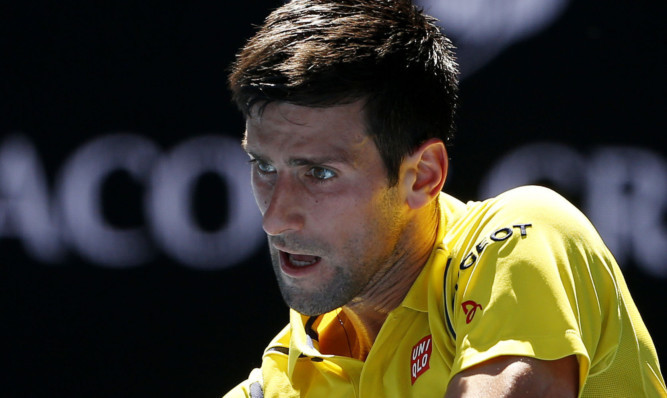World number one Novak Djokovic says he felt “terrible” when he was offered money to fix a match in 2006 and has denounced the practice as a “crime in sport”.
Djokovic instantly rejected the bribe made to him 10 years ago and insists he is unaware of any match-fixing currently happening at the top level of the game.
An investigation carried out by the BBC and Buzzfeed alleges that over the last decade a core group of 16 players have repeatedly been brought to the attention of the sport’s governing bodies over suspicions they have fixed matches.
The report claims all of the 16 players have ranked in the world’s top 50 and that more than half of them were playing in the Australian Open first round, which started on Monday.
The BBC said the group also included “winners of grand slam titles”.
Chris Kermode, president of the ATP which governs the men’s professional tour, said the sport’s authorities “absolutely reject” the suggestion that evidence of match-fixing has been suppressed.
Djokovic has previously claimed he was offered £110,000 to lose a first-round match in St Petersburg but says the bribe was turned down before it even reached him.
“I was not approached directly,” Djokovic said.
“I was approached through people that were working with me at that time, that were with my team.
“Of course, we threw it away right away. It didn’t even get to me, there was nothing out of it.”
Djokovic added: “It made me feel terrible because I don’t want to be in any way linked to this – somebody may call it an opportunity. For me, it’s an act of bad sportsmanship, a crime in sport honestly.
“I don’t support it. I think there is no room for it in any sport, especially in tennis.”
It is alleged that in 2007 tennis authorities were presented with an examination of 26,000 matches, three of them at Wimbledon, which contained enough evidence to root out offenders – but no action was taken.
Djokovic, however, insists he is not aware of any match-fixing at the top level of the game.
“From my knowledge and information about match-fixing or anything similar, there is nothing happening on the top level, as far as I know,” Djokovic said.
“At Challenger level, those tournaments, maybe, maybe not. But I’m not entitled to really talk about it. I can give my opinion.
“But there is an organisation, authorities, people who take care of that on a daily basis and make sure to track it down.
“It’s always a choice for a tennis player, an athlete or any person in life. You always have a choice, especially for somebody who is on the tennis court, whether or not you’re going to accept something that is going against everything that the sport stands for.
“I would always make the right choice. But I can only speak on my own behalf.”
The BBC and Buzzfeed chose not to name any players as they say it is not possible to determine whether they were personally taking part in match-fixing. Djokovic believes more evidence is needed.
“I don’t think the shadow is cast over our sport,” the Serb said.
“In contrary, people are talking about names, guessing who these players are, guessing those names.
“But there’s no real proof or evidence yet of any active players. As long as it’s like that, it’s just speculation. So I think we have to keep it that way.”
Serena Williams said she has also never seen any indication that match-fixing exists at the highest level of the game.
“Not that I’m aware of,” Williams said. “When I’m playing, I can only answer for me, I play very hard, and every player I play seems to play hard.”
The Tennis Integrity Unit was set up in 2008 to tackle corruption within the sport. The organisation’s director Nigel Willerton refused to confirm whether players competing at the Australian Open are currently under investigation.
ATP president Kermode, however, strongly denied that evidence of match-fixing had been ignored.
“The Tennis Integrity Unit and the tennis authorities absolutely reject any suggestion that evidence of match-fixing has been suppressed for any reason or isn’t being thoroughly investigated,” Kermode said.
“And while the BBC and BuzzFeed reports mainly refer to events from about 10 years ago, we will investigate any new information, and we always do.
“In its investigations, the Tennis Integrity Unit has to find evidence as opposed to information, suspicion, or hearsay.”
Tennis is the latest sport to be marred by claims of corruption after football and athletics have both been recently embroiled in controversy.
FIFA president Sepp Blatter resigned and was banned for eight years after he was found to have made a “disloyal payment” to UEFA counterpart Michel Platini while officials at the IAAF continue to come under scrutiny for over a conspiracy to cover up doping in athletics.
Secretary of State for Culture, Media and Sport John Whittingdale told BBC Radio 4’s Today show: “I hope that tennis will learn from the mistakes of others sports and investigate this very quickly and openly.
“In the past, allegations of this kind made, which have been against athletics, against football, have appeared to be swept under the carpet and that has done enormous damage.”
